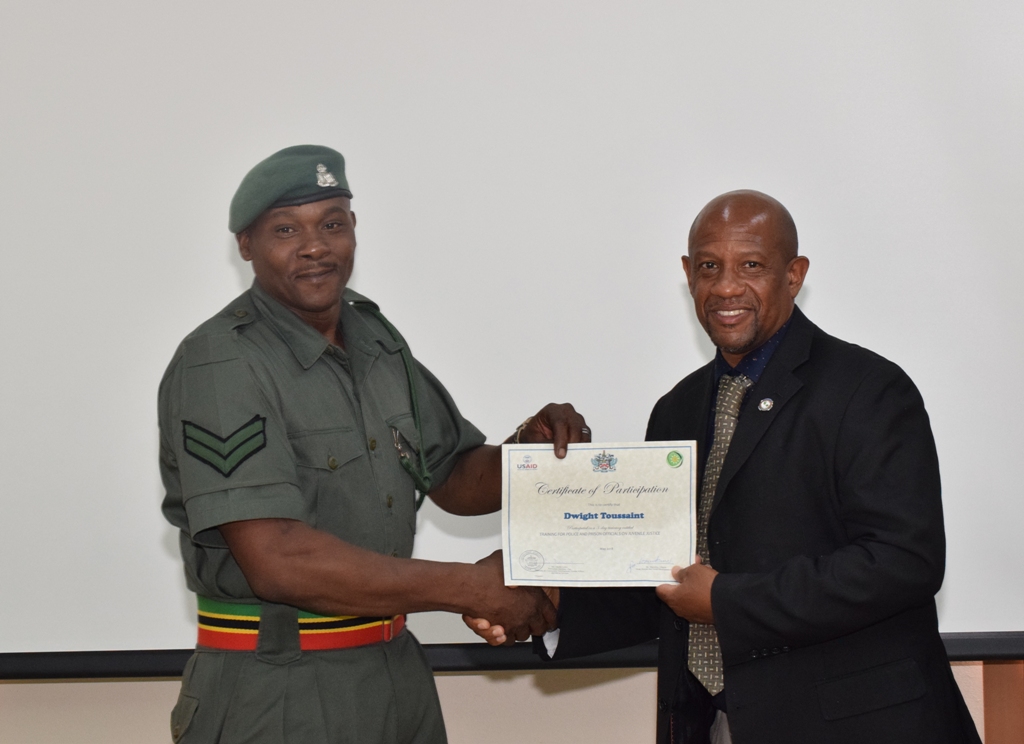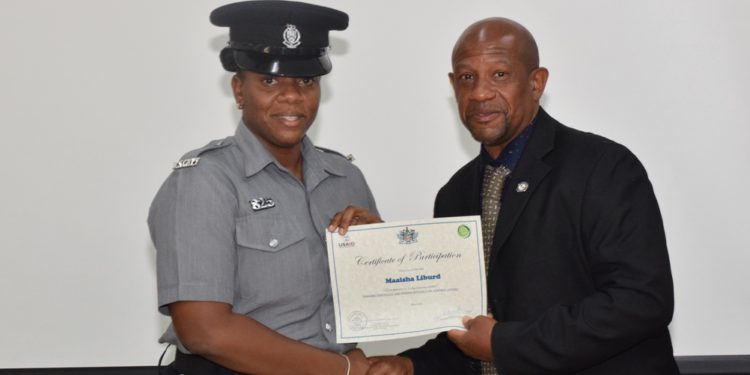Basseterre, St. Kitts, May 28, 2018 (SKNIS): The recently concluded Juvenile Justice Reform Project (JJRP) training course, held in St. Kitts from May 14-25, came in for high praises as law enforcement officers hailed the course a resounding success.
“This opportunity… has been momentous. It has opened our eyes to what we normally wouldn’t take to heart, which are our children,” said Corporal Dwight Toussaint of the St. Kitts-Nevis Defence Force. “What I have learnt here in the short period that we had with the facilitators is priceless. It has made me a new person. You may not see it because it is not visible and it only will be visible if you are working with me,” he added, noting that his attitude towards children who fall into trouble with the law has changed drastically.
Corporal Toussaint encouraged his peers to focus more on the nation’s youth and find ways to assist them as the trouble they may land themselves in can be as a result of changing times.
“A lot of times we look at children as just children. Yes, they are different today than before; they are wiser and swifter and everything that they do, they do it speedily, readily without wanting to wait. They don’t want to take talking to and that I would say is not a fault of theirs,” he said. “The times that we are living in today is what has bred the type of children that we deal with. They are now open to a wide variety of wrongs… and that is one of the main reasons why this course has been such an essential part of training law enforcement.”
He appealed to his colleagues to try different techniques that will positively influence children and make a difference in their lives. He noted that the onus is on adults, in particular law enforcement officers to ensure that the juvenile population follow the straight and narrow path, as children tend to look up to the men and women who serve.
Woman Police Constable (WPC) of the Royal St. Christopher and Nevis Police Force, Maaisha Liburd, shared similar sentiments and implored her colleagues to use what they have learnt wisely. She added that the training was informative and created an avenue for participants to enhance their understanding of the juvenile justice reform in St. Kitts and Nevis.
“I am sure that as a result of the training we can walk away with a different perspective and understanding of the workings of the juvenile justice system and also all the parts and stakeholders within the system,” said WPC Liburd, adding that it is important to understand that security forces play an integral role as stakeholders in the system.
The JJRP was implemented by the Organization of Eastern Caribbean States (OECS) Commission with funding from the United States Government through USAID in October 2011. The project works to increase the use of alternative sentencing for youth in conflict with the law; ensure detention centers and diversion programmes provide support services to foster rehabilitation; and support the reintegration of youth leaving detention facilities and returning to their families and communities.
It has been implemented in the six (6) independent states of the OECS, namely, Antigua and Barbuda, Dominica, Grenada, Saint. Lucia, St. Kitts and Nevis, and St. Vincent and the Grenadines.










